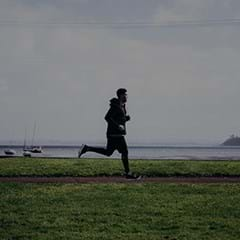While the whole point of exercise is to push your body to the point of fatigue, there is a tipping point. Take the intensity and frequency too far (and don’t allow for sufficient recovery) and you can slip into the dangerous overtraining category and put your body’s adrenal function under stress. When this happens your adrenal glands start functioning poorly and are unable to produce a normal quantity of hormones, specifically, cortisol – and when you’re lacking cortisol your body can’t effectively recover from exercise.
Overtraining, and the strain that goes with it, means not only do you not enjoy results on par with the effort you’re putting in, you’re likely to suffer disrupted sleep, moodiness and an increase in musculoskeletal injuries. It’s a vicious cycle, as overtraining causes your training progress to plateau – then, when you notice the drop in performance, you’re likely to aggravate the issue by starting to push yourself even more.
Severe overtraining can lead to Chronic Fatigue Syndrome, where extreme training pushes your body to the point you need months to recover. Former Olympic marathon runner Alberto Salazar experienced the shattering effects of this after falling into the “more-is-better” mind set and reasoning that if running 120 miles per week yielded a certain level of success, then 180 miles a week would bring even better results. His intense and gruelling training regime led to a breakdown of his immune system and he was frequently sick, injured and, as a result, unable to train at all.
Overtraining is not just the domain of athletes and exercise professionals. In fact, as Les Mills Head of Research Bryce Hastings explains, in most cases it’s the rigorous, carefully structured training regimes of professionals that save them. “Athletes periodize, training intensively for six weeks and then changing the intensity and frequency of their training, so they are never pushed to complete exhaustion.” Exercise enthusiasts are a different story. “These ‘exercise addicts’ identify their favorite types of training and then just go and go and go – they don’t stop! And they have a tendency to add to their regime [rather than replace] when something new comes along.”
It doesn’t all come down to exercise frequency and intensity; some people are more susceptible to burnout than others. Basically, if you’ve got low cortisol levels you’re at risk. While some of us have naturally low cortisol production, there are many personality, lifestyle and occupational factors that can have an impact too. Studies show things such as a history of physical or emotional trauma or prolonged stress, shift work, a position in middle management, teaching or healthcare, perfectionism and high consumption of refined flour and sugar can all make you more vulnerable1.
Signs of overtraining:
- Disrupted sleep
- Moodiness, a short fuse, or depression
- A plateau or drop in training progress
- An increase in musculoskeletal injuries
- Increased frequency of illness
- Feeling exhausted, rather than energized, after exercise.
If you have just the slightest inkling you could be overtraining you need to do something about it, because if you push your body to the point of Chronic Fatigue the only answer is to take a complete break and avoid exercise altogether – and that might be for six months or more! While the good news is your body will be healing, there are obvious negatives too. Your training goals will be put on hold, your progress will diminish, and it can be a real downer. Many sufferers of Chronic Fatigue Syndrome also suffer depression.
With this in mind, it’s important that you take preventative action and constantly review your training load and how your body is feeling as a result. While regular vigorous exercise is great, don’t shy away from taking days off, resting, and complementing your hard-core training sessions with restorative options like yoga, walking or short jogs. Most importantly, remind yourself that when you push your body to fatigue you don’t deserve a medal. You deserve a rest.
You can find out more about the effects of overtraining here.
If you’re keen to learn more about how monitoring your recovery can help boost your performance, check out Polar’s insightful read on stress and the importance of adequate recovery.








